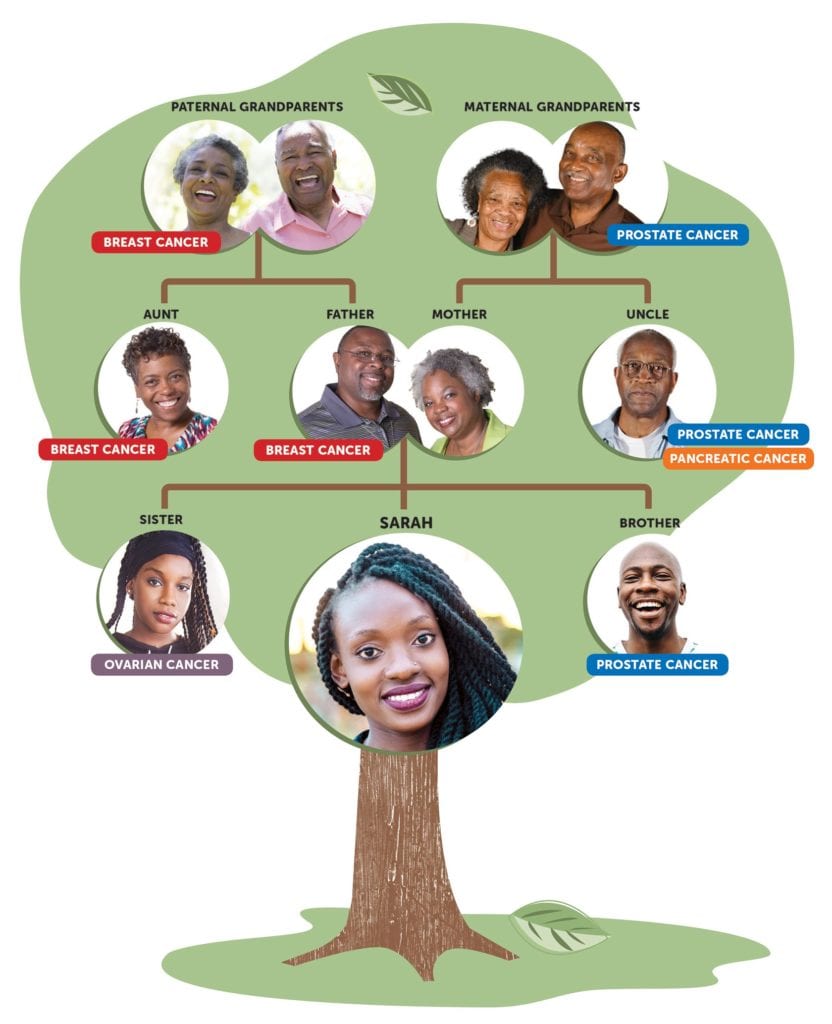
Adding a medical history to your family tree can reveal valuable information that may help you make decisions about your own health.
If your family history suggests the existence of a hereditary cancer, you might consider genetic testing, which will help determine a course of treatment. For instance, screenings can be started at an earlier age. Preventive surgery is another option. Keep in mind that a positive test does not guarantee that you will get cancer. It indicates increased risk. Nor does a negative result protect you from cancer. It means that your risk is average and similar to that of the general public.
Tips to get you started
- Include at least three generations if possible
- Note the relative’s age at diagnosis and the type of cancer
- Note the age and cause of death
- Watch for cancers that occur in more than one relative
- Look for cancers that occur at an earlier age than expected
- Look for multiple cancers in the same individual
- Look for unusual cancers, such as breast cancer in men






